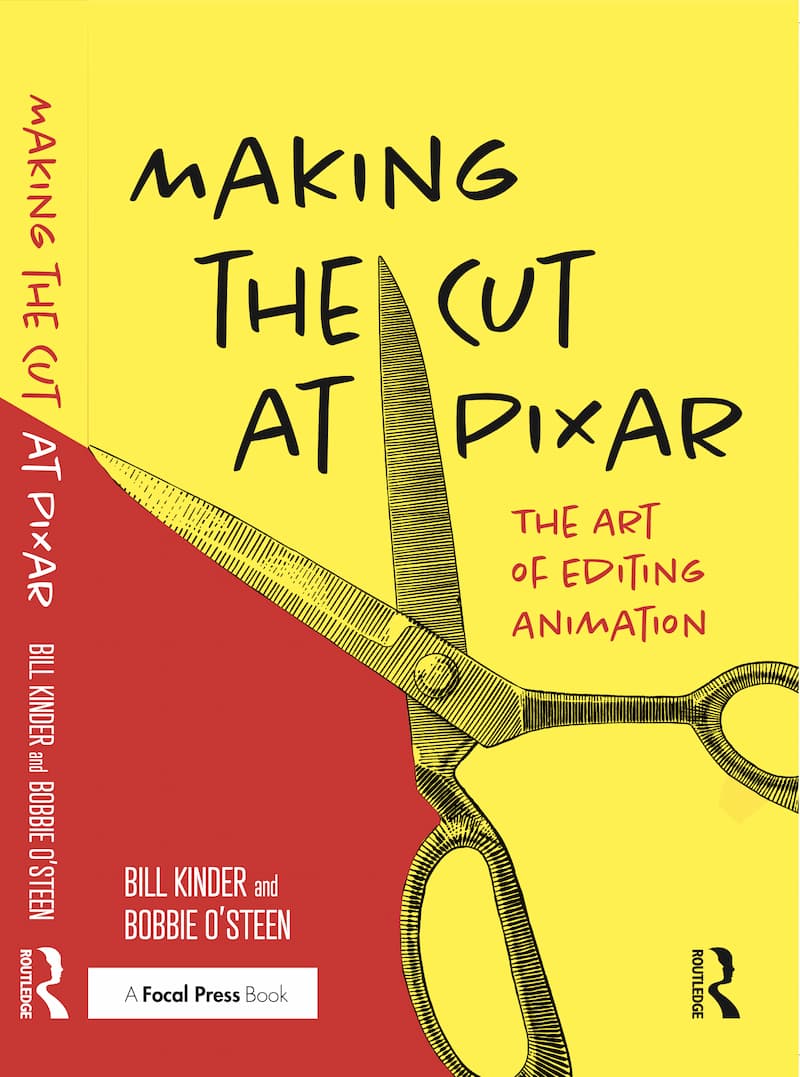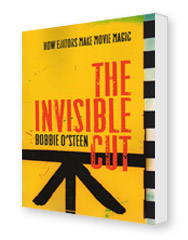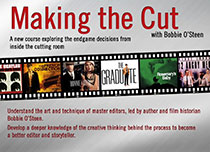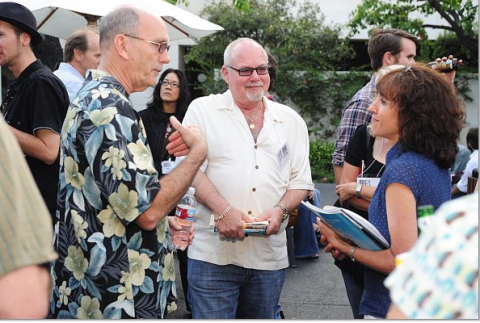
Talking shop with editor Joel Cox and A.C.E. President Randy Roberts
Two months after moderating a panel at EditFest NY, I did the same for EditFest LA, which took place on the Universal Studios lot.
Randy Roberts, the president of A.C.E. (American Cinema Editors), was once again a genial host giving the audience – mostly composed of aspiring editors – sound career advice. Example being: “Leave your ego at the door.”
The topic of discussion for my panel was again “Small Screen, Big Picture: Editing Television” and my panelists were all really interesting and different, both in personality and work experience.
Malcolm Jamieson, who was originally an artist, was very passionate when he talked about the art of editing, and in the clip he showed from Mad Men he explained how he achieved an important and poignant moment between two characters. David Rogers showed a hilarious clip from The Office, which showed how he was able to sequence – with dizzying swish pans and multiple points of view – the best performances and reactions. Karen Stern showed a clip from Law & Order: SVU with Robin Williams, where she was able to create and sustain the riveting intensity of the scene. Chris Willingham showed a clip from 24 and spoke about the challenges of editing in real time, and not being able to use cutaways and other time-jumping devices that editors usually rely upon. His wife, Lynne Willingham, showed a clip from Breaking Bad (for which she just won her second Emmy) and spoke compassionately about how difficult it is for some of the directors on this series – who are often from indie film backgrounds – to adjust to working in a producer-controlled medium.
I had great conversations with two very different and fascinating feature film editors as well. Brent White (who edits the movies Judd Apatow directs and the two he produced with Adam McKay directing) comes from a background one might not expect – he’s a Mormon from Utah. On the other hand it’s not really surprising that this family man with a positive personality would be the right choice. After all, there is a warm, relationship-oriented sensibility underlying the outrageous bad boy/dark humor in Apatow’s work. These movies shoot a ton of footage and much of it is improvised, so his editor also has to have a lot of patience and insight to find the gold in them thar hills. Example: the high-point scene in McKay’s Talladega Nights was written in the screenplay as just a dinner table scene with product placement.’ They let the cameras roll for two days straight!
Joel Cox is Clint Eastwood’s editor and has the same macho, no-nonsense strength about him as his director. He told me that my husband Sam O’Steen, who he had known when they were both apprentices at Warner Brothers, influenced him in two ways. He was inspired by Sam’s resolve to wait for that break into feature films no matter how long it took. (It took Sam 18 years: 10 years in Warner’s print shop and 8 years assisting, finally becoming an editor on Youngblood Hawke.) Sam also never looked at anything he cut until he ran it for the director. The lack of second guessing, is very compatible with Eastwood’s style of shooting, since he rarely shoots multiple takes and is very clear about what he wants before he starts filming.
All told it was an inspiring weekend. And editors are funny, they are not by nature talkers, and often seem mortified at the idea of getting up and speaking. But once they get started – boy, can they talk!
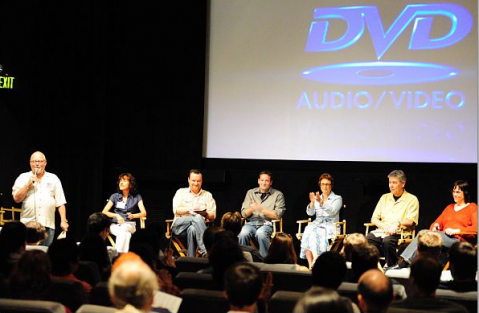
My panel: Malcolm Jamieson, David Rogers, Karen Stern, Chris Willingham and Lynne Willingham

